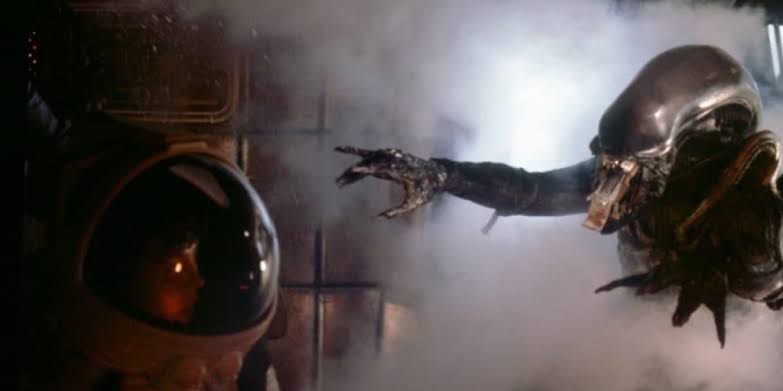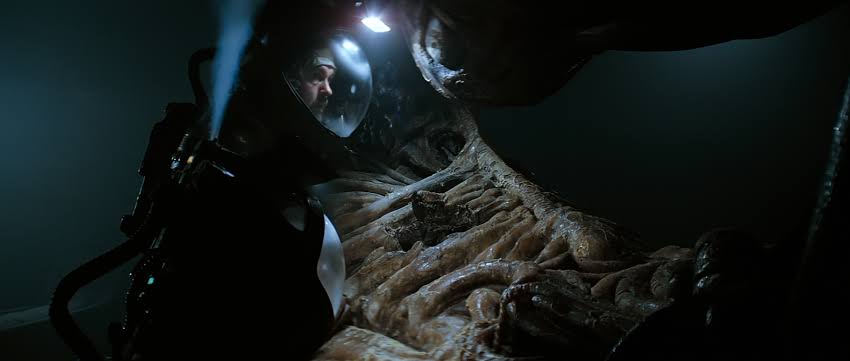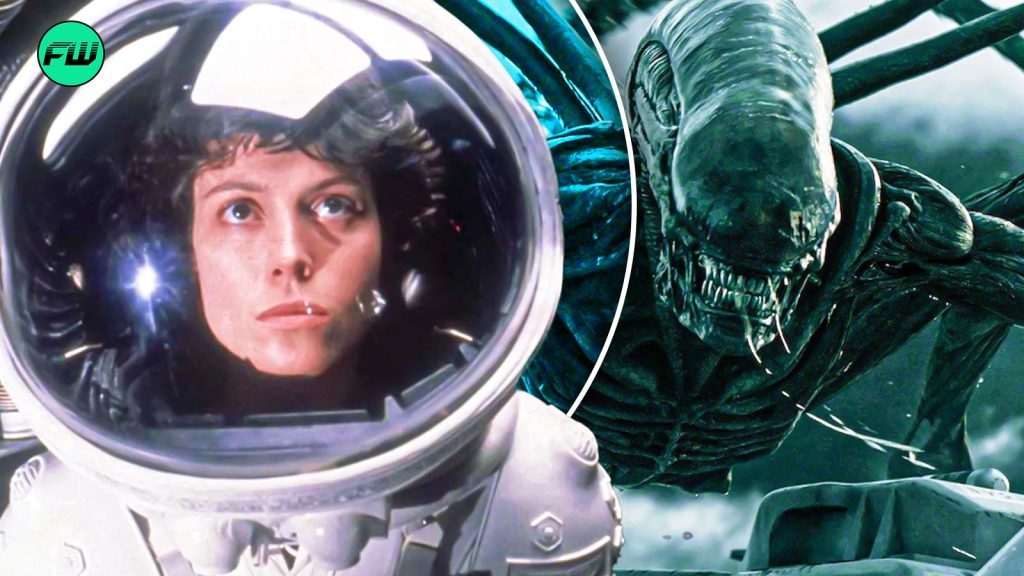Ridley Scott, renowned for his visionary approach to filmmaking, set out to challenge the conventions of the sci-fi genre with his 1979 film Alien. In a bold move, he envisioned Alien to be the complete opposite of Star Wars. Further, deliberately crafting a storyline that diverged sharply from the space opera’s epic, heroic tones.

Instead of the adventurous and optimistic universe of George Lucas’s creation, Scott’s Alien introduced audiences to a darker, and intensely terrifying world. Further, redefining the sci-fi landscape with its unique, horror-driven approach.
Ridley Scott on Making Alien the Opposite of Star Wars
Star Wars set a new standard for science fiction movies. Following which, the late 1970s saw a wave of similar sci-fi films. Studios quickly released movies like Star Trek: The Motion Picture, Disney’s The Black Hole, the sci-fi-infused James Bond adventure Moonraker, and Japan’s bold take on the Star Wars formula, Message from Space. However, Ridley Scott’s Alien stood out among these releases.

In an interview with The Hollywood Reporter, Scott shared that his goal for Alien was to create something completely “Antithesis of Star Wars.” Further, he was inspired by Stanley Kubrick’s 2001: A Space Odyssey, which offered a more realistic portrayal of space. And wanted Alien to contrast the polished and romanticized depiction of space travel seen in George Lucas’s 1977 blockbuster.
In the same interview, he further reflected on how Star Wars presented a more fantastical and idealized version of space, while 2001: A Space Odyssey showcased the cold, harsh realities of the cosmos. These two contrasting movies had a profound impact on his views, particularly regarding technology.
He realized, perhaps for the first time, the superior intelligence of computers over humans – a theme explored through the character of Ash in Alien, who embodies the potential dangers of artificial intelligence. So, Scott deliberately chose to distance his movie from the shiny, futuristic vision of space seen in Star Wars.

Instead, he envisioned a grittier, more worn-in universe where spaceships weren’t pristine or cutting-edge but felt used and industrial, like a spacefaring freight ship. This approach was Scott’s subtle reaction against the sleek, polished aesthetic that Star Wars had popularized, marking Alien as a distinct and innovative entry in the science fiction genre.
Why Did Ridley Scott Avoid Meddling in Alien: Romulus?
As reported by Variety, Ridley Scott, the visionary behind the iconic Alien franchise, handed over the directorial reins to Fede Alvarez for the recently released Alien: Romulus. While stepping back from the director’s chair, Scott remained deeply involved as a producer, offering guidance and support to the new helmsman.

The seasoned filmmaker acknowledged the challenges of maintaining a franchise’s vitality, emphasizing the need for fresh perspectives. He praised Alvarez’s enthusiasm and creative vision, noting that the young director brought new energy to the Alien universe.
Despite his typically hands-on approach, Scott was adamant about giving Alvarez the creative freedom to shape the film without excessive interference.
Alvarez, in turn, expressed both excitement and trepidation about taking on such a high-profile project. He acknowledged the immense pressure of working on a franchise created by a cinematic legend like Scott and the importance of gaining the veteran director’s approval.
You can watch Alien: Romulus in theatres near you. Further, Ridley Scott’s Alien is available to stream on Hulu and Fubo TV.




